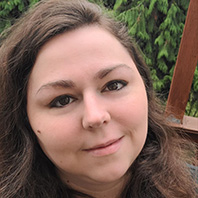Grief Support Groups & Finding Comfort Before & After a Loved One’s Death

Grief has a profound impact on people. Even if your loved one has not yet passed away, you may be grappling with the reality that they will soon. Often, support from someone — or a group of someones — who is going through something similar can help in a unique way. You can find a grief support group to help alleviate the pain and know that you’re not alone.
Key Takeaways
- Grief support provides emotional, psychological, and social assistance.
- Joining a grief support group can provide comfort before and after a loved one’s death.
- Grief support groups provide extensive benefits, including creating a sense of community and providing emotional validation.
What Is Grief Support?
Grief support is the emotional, psychological, and social assistance provided to people mourning the loss of a loved one. Everyone responds to different types of support in their own way, and there are various methods of grief support to work with that, such as professional counseling, support groups, and informal support from loved ones.
Who Should Consider Joining a Grief Support Group?
Grief support groups are a space where you can share your experience of loss with others who know what you feel. Many people can benefit from bereavement support, especially when facing end-of-life crises. Support groups provide support for a range of situations, including:
- Seniors who have lost a loved one
- Seniors preparing for their death
- People anticipating losing a loved one
- People dealing with the sudden loss of a loved one
Many groups narrow down the focus further, such as offering support for the loss of a parent, spouse, or child. Others may focus on losing a loved one in a certain manner, such as by cancer, suicide, or a car accident.
You’re not alone in your loss, and you can find a support group that focuses on your situation[1].
Feeling depressed during grief could make you avoid support groups and prefer solitude instead. Take time to process emotions at your own pace. Be gentle with yourself. A therapist can help you understand and process your feelings, explain the benefits of support groups, and help you join a group when you are ready.
Dr. Brindusa Vanta, MD
Types of Grief Support Groups
Support groups come in several formats, each serving the purpose of providing guidance and support.
Peer Support Groups
Peer support groups are often run by the members of the group themselves. If not, they’re facilitated by a professional counselor. They provide a unique environment for participants to connect over shared experiences. Participating in a peer support group can be instrumental in receiving mutual support from those who’ve been in your shoes and learning coping methods others have had success with.
Community Support Groups
Community support groups are managed by local organizations, such as religious institutions or healthcare providers. They operate similarly to peer support groups.
In-Person vs. Online Grief Support: Knowing What’s Best for You
Deciding to attend a grief support group online or in person is highly dependent on your personal preferences.
In-person support groups allow face-to-face interaction with people, something many tend to prefer. These groups get you out of your home and help you meet new people who are local to you and can join your social support circle. However, depending on where you live, these can be difficult to access. If you live somewhere rural, for example, you may have a long drive to get to your nearest support group.
Online grief support groups still provide some face-to-face interaction through camera. Introverts, in particular, may find these virtual groups to be more suitable. Likewise, they aren’t limited by distance, allowing you to find a group tailored to your specific loss scenario. You may also be able to participate anonymously if you prefer privacy. However, if the support group primarily communicates in written form, miscommunication can occur. Likewise, anonymity makes it difficult to know if others in the group are being honest and can lead to disrespectful behaviors.
What Are the Benefits of Grief Support Groups?
Grief support groups provide several benefits to bereaved individuals, from providing emotional support to creating a sense of community[2].
Finding Emotional Support in a Safe Environment
Grief support groups provide a safe environment to explore your emotions with people who understand them. By sharing, you can release stronger feelings while also gaining a sense of hope from those who are further along in the grief process than you are.
Support groups help you understand and express your painful emotions rather than suppressing them. Experiencing the pain of loss is important during the healing process, serves as a lesson (to learn living without a loved one), and can offer a challenge for personal growth.
Dr. Brindusa Vanta, MD
Learning and Sharing Coping Strategies to Manage Grief Effectively
In support groups, you benefit from hearing from other people in your situation and how they best coped with their tumultuous emotions. You might learn new techniques you’ve never tried or considered before or discover ways to tailor your coping to your situation.
Feeling a Sense of Community by Connecting With Others
Grief can cause isolation, especially if you withdraw from your usual social circle. A common experience for grieving individuals is feeling like others don’t understand their feelings. A support group can help provide that, along with emotional support and validation, from people who know what grief is like.
Getting Access to Additional Resources
Support groups often have connections with additional resources that can help bereaved individuals or those in need of end-of-life support. You may hear from others about resources they’ve used or gain access to other supportive services.
How to Find a Grief Support Group Near You
You may be able to find information about local support groups online. If you’re unsure where to start, consider talking to your doctor.
Nonprofit organizations that advocate for particular medical conditions (such as those your loved one suffered from) and the National Institutes of Health websites for specific conditions may also be able to help you locate suitable bereavement support groups.
You Don’t Have to Grieve Alone
Finding support before and after the death of a loved one can help ease the process of grieving by helping you understand what to expect and connecting you with others in your position. It’s normal to need help and support while grieving, and reaching out to support groups is a brave step in your healing process.

Written by Serena Tanner
Serena Tanner attended the University of Washington, where she earned a degree in philosophy after many detours delving into human rights, law, psychology, and social work. Health and holistic wellness topics continue to hold a special place in her heart. When she's not reading or writing, she can be found exploring the Pacific Northwest with her two children and dogs.

Edited by Katelynne Shepard
Katelynne Shepard is a writer, editor and SME who is proficient at crafting and reviewing content. She has been a full-time copywriter and editor since 2011 and has written content for Fortune 500 companies, independent law firms, indie publishers, small-business owners and mainstream websites. She specializes in parenting, lifestyle, family law, personal injury, criminal law, immigration law, astrology, personal finance, education and health care. In addition to thousands of e-commerce product and category descriptions, Verle's work includes SEO blogs, social media posts and long-form informational articles.

Subject Matter Expert Brindusa Vanta, MD
Dr. Brindusa Vanta is a healthcare professional, researcher, and medical subject matter expert . She earned her MD degree from "Iuliu Hatieganu" University of Medicine, Romania. She has a special interest in mental health and has collaborated with psychologists and other mental health practitioners on various research projects focused on therapies to manage depression, age-related cognitive decline, trauma and stressor- related conditions.
Sources
Mental Health America. (n.d.). Find support groups. Sourced from https://mhanational.org/find-support-groups
Mayo Clinic. (n.d.). Support groups: Make connections, get help. Sourced from https://www.mayoclinic.org/healthy-lifestyle/stress-management/in-depth/support-groups/art-20044655